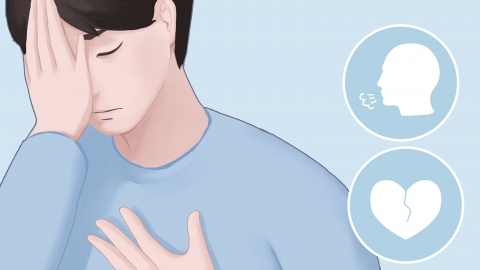Why do patients with depression experience fatigue, weakness, and severe discomfort?
It is very distressing for patients with depression to experience fatigue and weakness. The core causes include neurotransmitter imbalances, abnormal energy metabolism, disrupted sleep structure, endocrine disorders, and excessive psychological burden—resulting from the combined effects of physiological and psychological factors. If symptoms persist or worsen and affect daily life, timely medical consultation is recommended.
1. Neurotransmitter Imbalance: Insufficient secretion of serotonin and dopamine not only affects mood regulation but also suppresses energy metabolism and motivation for physical activity, causing the body to remain in a state of low energy, leading to unexplained fatigue and feelings of weakness.
2. Abnormal Energy Metabolism: In a depressed state, the body's metabolic rate slows down, mitochondrial energy production decreases, and cells become inadequately fueled. As a result, patients may feel exhausted even without strenuous activity, and rest often fails to provide relief.

3. Disrupted Sleep Structure: Patients often suffer from early morning awakening, difficulty falling asleep, or light sleep. A lack of deep sleep prevents adequate recovery of both body and brain, resulting in daytime fatigue and mental sluggishness, which intensifies discomfort.
4. Endocrine Dysregulation: Dysfunction of the hypothalamic-pituitary-adrenal (HPA) axis leads to abnormally elevated cortisol levels. Prolonged exposure depletes bodily energy reserves and may impair thyroid function, further exacerbating fatigue and weakness.
5. Excessive Psychological Burden: Persistent negative emotions such as self-blame and hopelessness consume significant psychological resources, leaving patients lacking in motivation and accompanied by somatic symptoms like dizziness and general weakness, creating a vicious cycle between mind and body.
Maintaining regular, moderate exercise such as walking or yoga can promote metabolism and neurotransmitter release; a balanced diet rich in high-quality protein and vitamins provides essential energy; simplifying daily tasks and avoiding overexertion help gradually restore physical and mental vitality.









